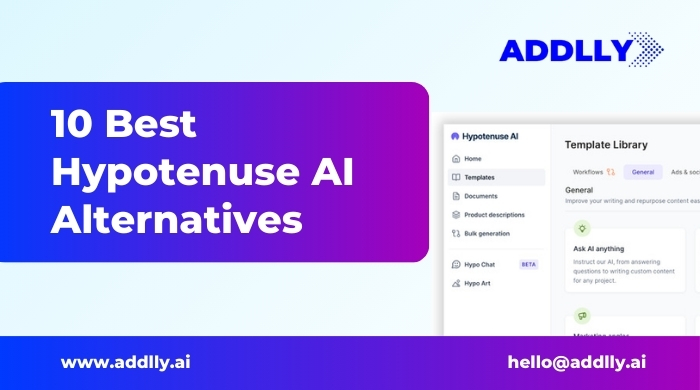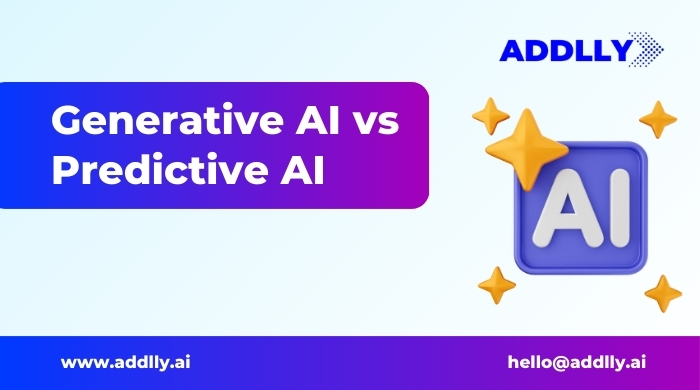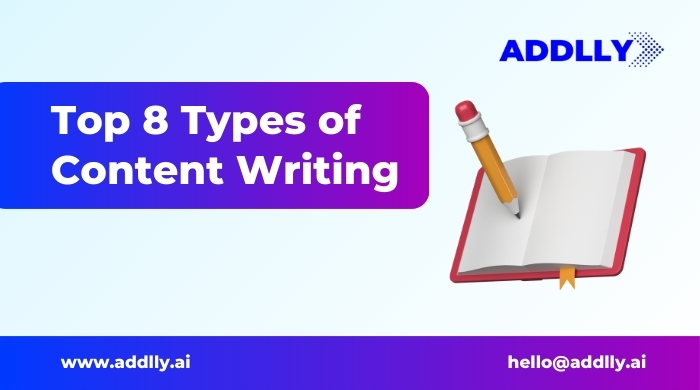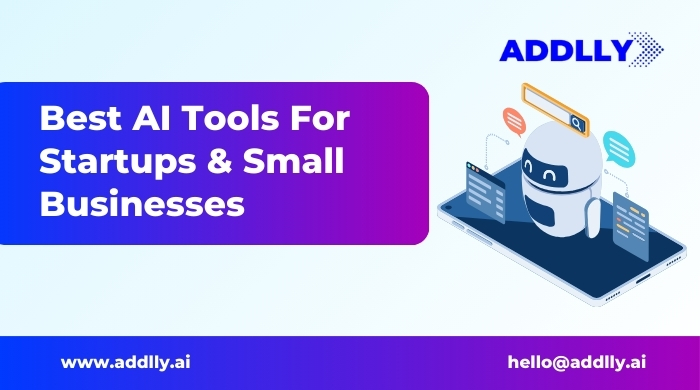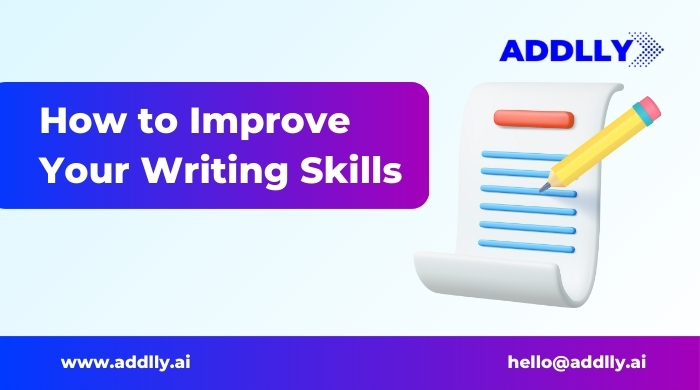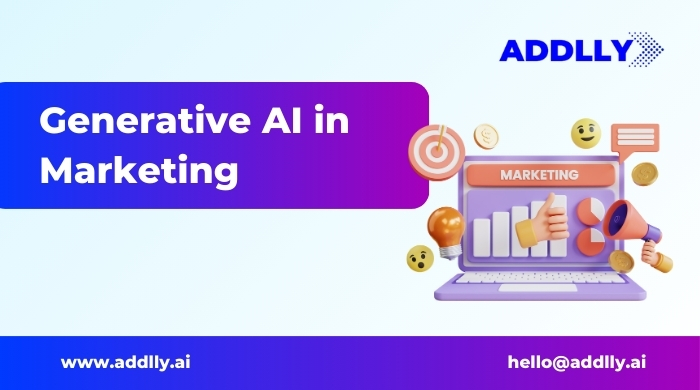In recent years, the increase of AI tools has given rise to a fundamental debate in the field of digital content creation and search engine optimization (SEO). The core issue revolves around “Can Google Detect AI Content”.
AI written content, often referred to as automatically generated content, has gained significant traction due to the advancement AI. There are content creation tools like Addlly.AI and a few more which have evolved to the point where they can generate human like content that is coherent and contextually relevant.
This development has sparked concerns within the SEO community about the potential repercussions of using AI-generated content for website optimization.
In this article we’ll give you detailed information about “can google detect ai content”, “how the content written using AI works”, “how does it affects SEO” and, “what are google’s guidelines on content written using AI”.
Introduction to AI Generated Content and Google’s Search Algorithms

The rise of artificial intelligence (AI) has revolutionized the way content is generated and consumed. AI content refers to material that is created or enhanced using machine learning algorithms, without direct human intervention. This has sparked debates and concerns about the detection and impact of AI content on search engine optimization (SEO). In particular, the focus is on how Google’s search algorithms perceive and respond to AI-generated content.
As AI continues to evolve, the lines between content written by humans and content generated by AI tools become increasingly blurred. This evolution presents both, opportunities and challenges for digital marketers and SEO practitioners.
While AI can produce vast volumes of content efficiently, it must adhere to Google’s guidelines for quality and relevance. Understanding how Google’s search algorithms perceive and treat AI-generated content is pivotal in leveraging this technology effectively while maintaining a strong SEO strategy.
How AI Content Works?
Content generated using AI is typically created through deep machine learning algorithms that analyze vast amounts of data, such as text, images, and videos present over internet. These algorithms learn patterns, styles, and structures from the data and generate new content based on that knowledge. This process allows AI systems to produce articles, 1 click blog posts, product descriptions, social media posts, and other types of content quickly.
Can Google Detect AI Generated Content?

While the exact methods that Google uses to detect AI content are not publicly disclosed. It is believed that the search engine can identify AI content to some extent. Google has a sophisticated algorithmic system that constantly evolves to assess the quality and relevance of content.
While AI written content may initially deceive search algorithms, Google is continuously enhancing its capabilities to identify and assess such content accurately.
How Does AI Content Affect SEO?
The usage of AI content raises concerns for SEOs who are looking to optimize their website rankings. However, Google has clarified that the focus is not on the method of content creation, but on the intent and quality of the content itself. As long as AI content is created to provide value and meet the needs of users, it should not negatively affect search rankings. But, if you are still thinking is AI content is good for SEO then no need to worry as AI content if created from a user’s point of view, will rank good.
Risks of AI Generated Spam Content
While AI writers generate content for user engagement and satisfaction, it’s essential to avoid spammy content. Content produced solely to cater to search engines, whether it’s crafted by humans or AI writers, is considered spam or in easy terms, not useful by Google.
Such content is seen as an attempt to manipulate search results, potentially resulting in manual penalties from Google’s algorithm. This can adversely affect a website’s visibility in search results.
Google’s Search Liaison Weighs In on AI Generated Content and SEO
Statement from Google’s Search Liaison
Google’s Search Liaison, Danny Sullivan, has provided insights into how Google perceives and handles AI generated content in the context of SEO. His statements aim to clarify any misunderstandings and shed light on Google’s stance regarding this type of content.
AI Content Not Explicitly Considered Bad
Danny Sullivan emphasized that Google has not explicitly stated that AI content is bad or against their guidelines. The issue lies with content that is written primarily for search engines, regardless of whether it is created by humans or AI. This distinction highlights the importance of creating content that is user-focused and adds value for real people instead of solely targeting search engine algorithms.
Quality and Relevance are Key Factors
Sullivan reiterated the significance of quality and relevance in content creation. Google’s algorithms are designed to detect and prioritize content that is helpful, informative, and meets the intent of user searches. As long as AI-generated content aligns with these principles, it is unlikely to face penalties or negative impacts on SEO.
Content Should Serve Users, Not Search Engines
The core principle behind Google’s evaluation of content is the focus on delivering value to users. AI-generated content can be leveraged effectively as long as it serves the needs, interests, and queries of users. Content creators should prioritize the user experience and avoid practices that artificially manipulate rankings by tailoring content exclusively for search engines.
User-Centric Approach to SEO
Sullivan’s statements underline the fact that a user-centric approach to SEO is paramount. Content creators should concentrate on producing high-quality, user-focused content that answers questions, provides insights, and delivers valuable information. AI-generated content can be a valuable asset in that process, but ultimately, it is the value to users that determines SEO success.
John Mueller’s Statement on AI-Generated Content

John Mueller, a spokesperson for Google, has provided insight into Google’s perspective on AI-generated content and its implications for search engine rankings. His statement sheds light on the potential risks content creators face when using AI writing tools and emphasizes the importance of adhering to Google’s guidelines.
Auto-generated Content and Google’s Guidelines
According to Mueller, content generated by AI writing tools falls under the category of auto-generated content, which Google considers spam-like. This includes text that is solely or predominantly created by AI rather than being authored by a human. Google’s guidelines prioritize original, authoritative, and trustworthy content that provides value to users.
Create Content for Humans, Not for Search Engines
The focus for content creators should be on developing high-quality content that is valuable and relevant to users. Regardless of whether content is generated by humans or AI, serving the needs and addressing the queries of human readers is crucial. The goal is to enhance user experience and provide meaningful information.
Google’s Guidelines on E-A-T for Content Creation
Google’s webmaster guidelines stand as a beacon in the digital landscape, guiding content creators, both human writers and AI-driven tools, towards creating high-quality and relevant content. At the heart of these guidelines lies the E-A-T principle: Experience, Expertise, Authoritativeness, and Trustworthiness.
Human writers, with their unique life experiences and expertise, bring a personal touch to content. They can delve deep into complex topics, establishing themselves as authoritative voices. Their ability to fact-check and provide credible sources builds trust with readers, aligning perfectly with Google’s criteria.
Google’s guidelines underscore the need for content that satisfies the E-A-T principles. Whether created by human writers or AI tools, it’s the adherence to these guidelines that ensures content’s quality and relevance in the digital realm.
The Role of E-A-T in Google’s Ranking Algorithm
Google’s ranking algorithm aims to deliver the most relevant and reliable content to users. E-A-T is a framework that helps Google assess the quality and value of content, ensuring that it meets user expectations. While E-A-T guidelines are not explicitly focused on AI-generated content, they hold significance for all types of content, including AI-generated text.
Emphasis on Expertise and Trustworthiness
With regards to AI-generated content, it is crucial to demonstrate expertise and trustworthiness. Google’s guidelines require content creators to back their content with first-hand experience and showcase their knowledge in the respective field. Additionally, transparency, accuracy, and reliability of the information presented are essential aspects of building trust with users and meeting Google’s guidelines.
The Importance of User-Centric Content
Regardless of the origin of the content, be it AI-generated or human-authored, it is vital to prioritize the needs and experiences of users. Google prioritizes content that provides value, addresses user queries, and offers a positive user experience. Therefore, content creators should focus on creating user-centric content that aligns with Google’s E-A-T guidelines.
The Future of AI-Generated Content and Google’s Response
The rapid advancement of AI technology raises questions about the future of AI-generated content and how Google will adapt to detect and evaluate it accurately. While Google’s current ability to detect AI-generated content remains uncertain, it is likely that their algorithms will evolve to keep up with the changing landscape.
Google has not provided a definitive answer on its ability to detect AI-generated content. However, their stance on auto-generated content and penalties for such content indicate their position on its use. It is recommended to avoid relying solely on AI-generated content and instead focus on creating high-quality, user-centric content that aligns with Google’s guidelines.
The Importance of Content Quality
Regardless of the technological advancements, the importance of content quality, relevance, and user experience remains paramount. Content creators should continue to prioritize providing valuable and engaging content to users, no matter the origin of the content.
As AI technology and the use of AI-generated content continue to evolve, it remains to be seen how Google and other search engines will adapt their algorithms to effectively detect and evaluate AI-generated content in the future.
Conclusion
In conclusion, the collaboration between AI and human expertise is the key in content creation. Google’s AI content detection highlights the significance of producing content that brings value to users. By combining the advantages of AI with human creativity and insights, content creators can strive to provide the best possible content, regardless of whether it is AI or human-generated.
Adapting strategies, staying up-to-date with SEO practices, and prioritizing the user experience will help content creators navigate the ever-changing landscape of AI-driven content and ensure success in the digital realm.
Author
-
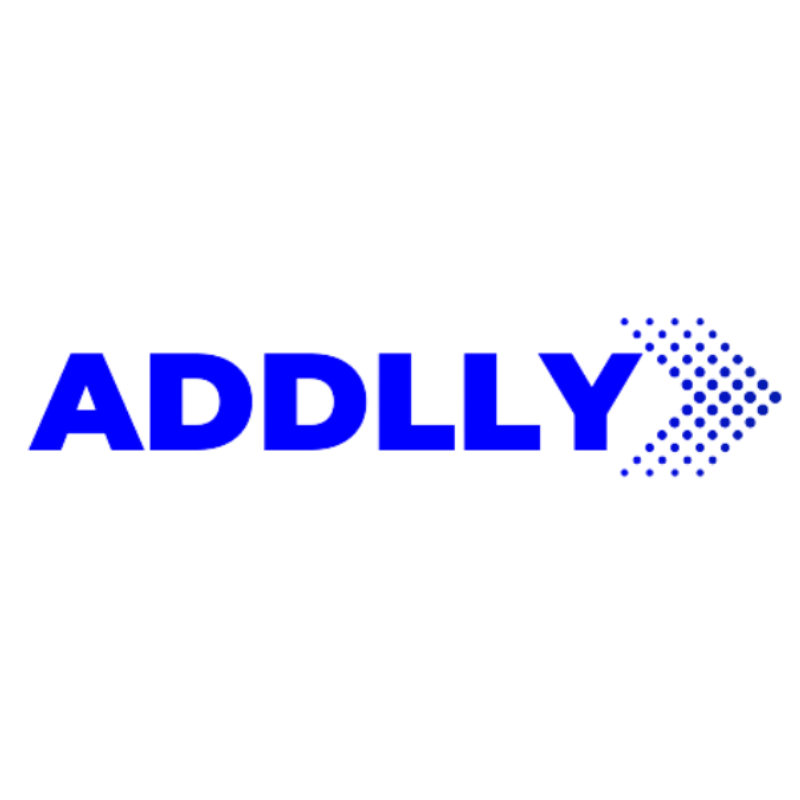
Transform your website and social media presence with the most advanced AI content writing tool.

